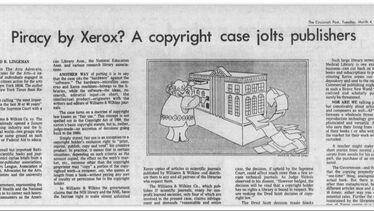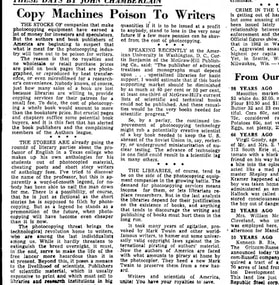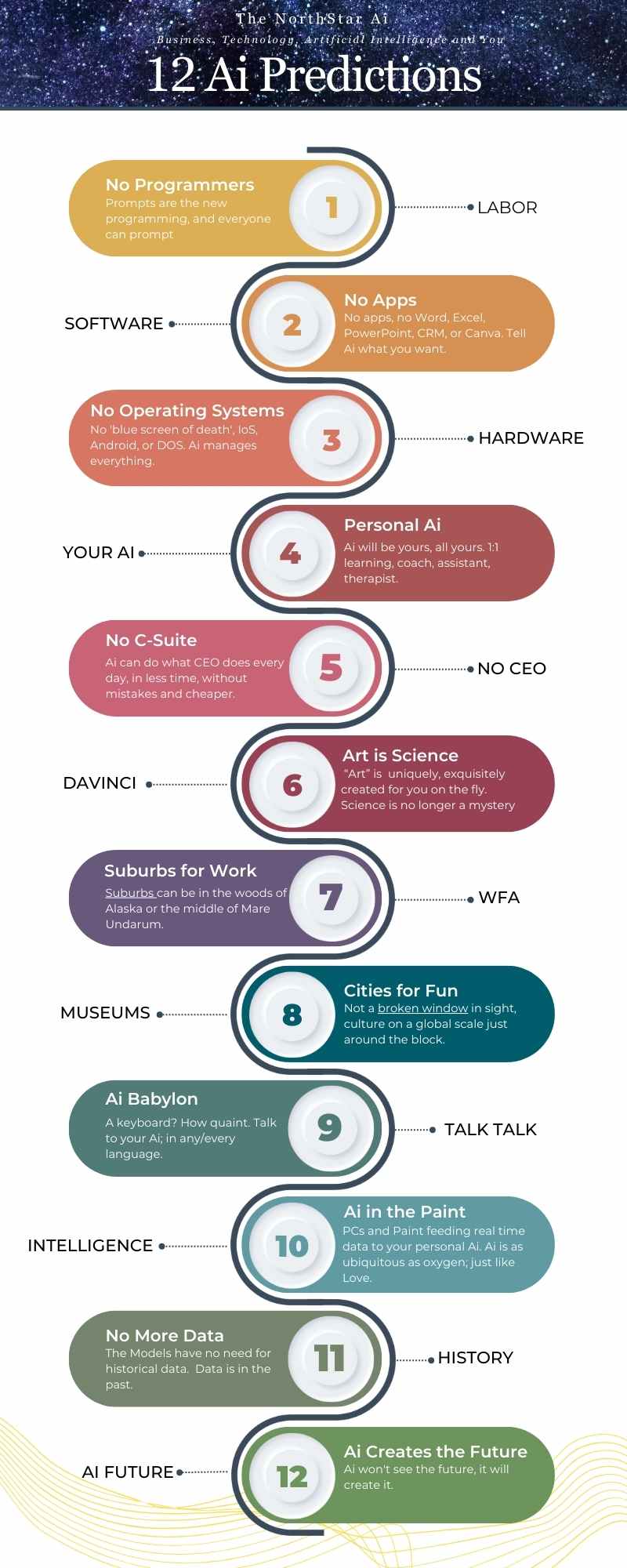|
By Greg Walters
Executive Summary:
At the heart of this tumult was a question of freedom and control. The photocopier was a democratizing force, enabling anyone to duplicate and disseminate information freely. This freedom was liberating for many, but for publishers and authors, it signaled a possible end to their intellectual property rights and control over distribution.
In 1963, an article painted a grim picture of the future the photocopier could unleash. It told tales of a Texas professor creating custom anthologies for his students, bypassing the need to purchase copyrighted anthologies. The trend threatened to make the freelancing life even more precarious and cast a shadow over the future of the scientific publishing industry.
The inevitable clash between the forces of progress and preservation came in the form of a lawsuit in 1968 when a publisher took legal action against the government for photocopying and distributing its materials. The legal wrangling ended with a landmark ruling by the Supreme Court that established 'fair use,' allowing limited duplication for certain purposes. This saga culminated in the revision of the Copyright Act in 1976. Libraries, caught in the crossfire between users wanting to reproduce work for research and publishers asserting their rights, lobbied for exemptions. While they didn't secure a complete victory, they won concessions that permitted limited reproduction for research and preservation. However, as the dust settled on the photocopier wars, a new challenger arose. ARPANET, the precursor to the internet, launched in 1983, making concerns about physical reproduction seem antiquated. It ushered in an era where information could be disseminated globally at the click of a button, outpacing any threat the photocopier could have posed. The saga of the photocopier serves as a reminder of the disruptive power of technology and the inevitable tension between progress and preservation. As we navigate the current digital era, these lessons from the past remind us to balance the democratization of information with the protection of intellectual property rights.
Tweet: "#Throwback to the 70s when #photocopiers were seen as a threat to #publishing and #copyright laws. Who knew #tech evolution would lead to an even bigger challenge with the internet? ???️ #Xerox #TechnologyTrends"
LinkedIn Post Intro: "Remember when the humble photocopier was seen as a disruptor? This piece takes us back to a time when Xerox machines sparked fear in the publishing industry. Today, with the internet and digitalization, it's hard to imagine that this physical reproduction device was once perceived as a major threat to intellectual property. Let's explore this fascinating chapter in tech history..." Song: "Radio Ga Ga" by Queen: This song speaks about the evolution of media and technology, a theme consistent with the transition from photocopying to digital dissemination of information. Author
0 Comments
Your comment will be posted after it is approved.
Leave a Reply. |
Topics & Writers
All
AuthorsGreg Walters Archives
July 2024
|




